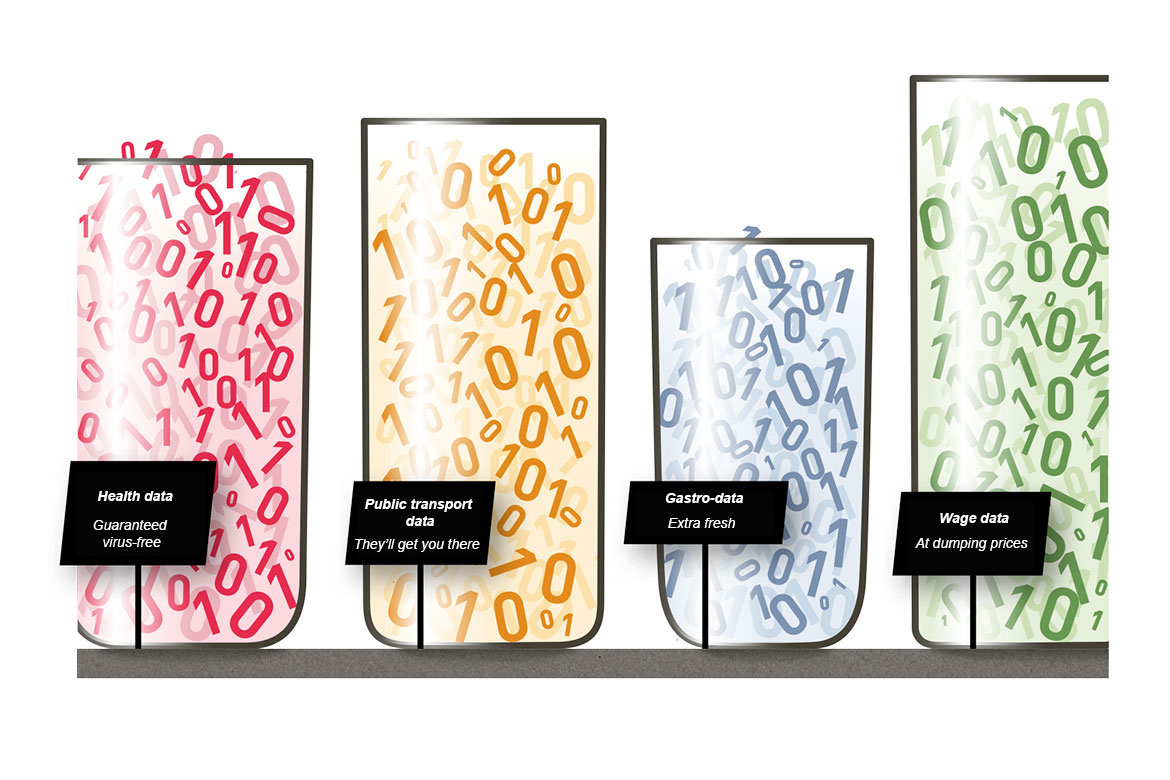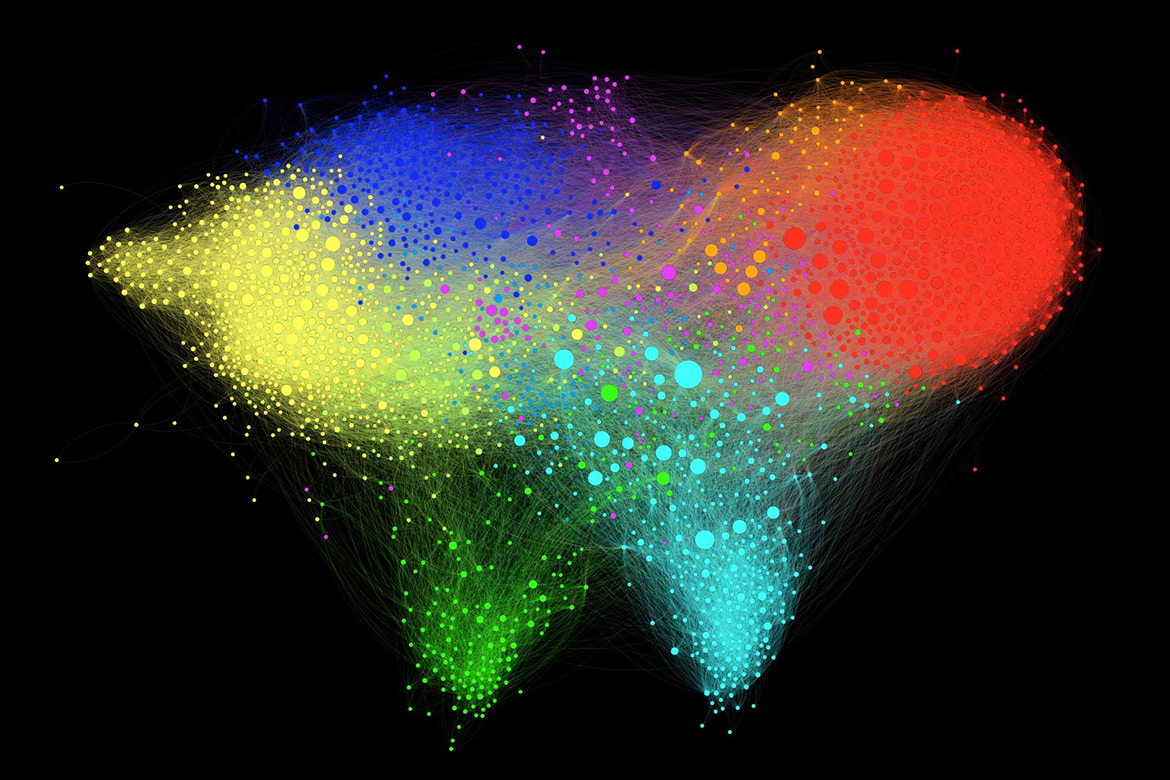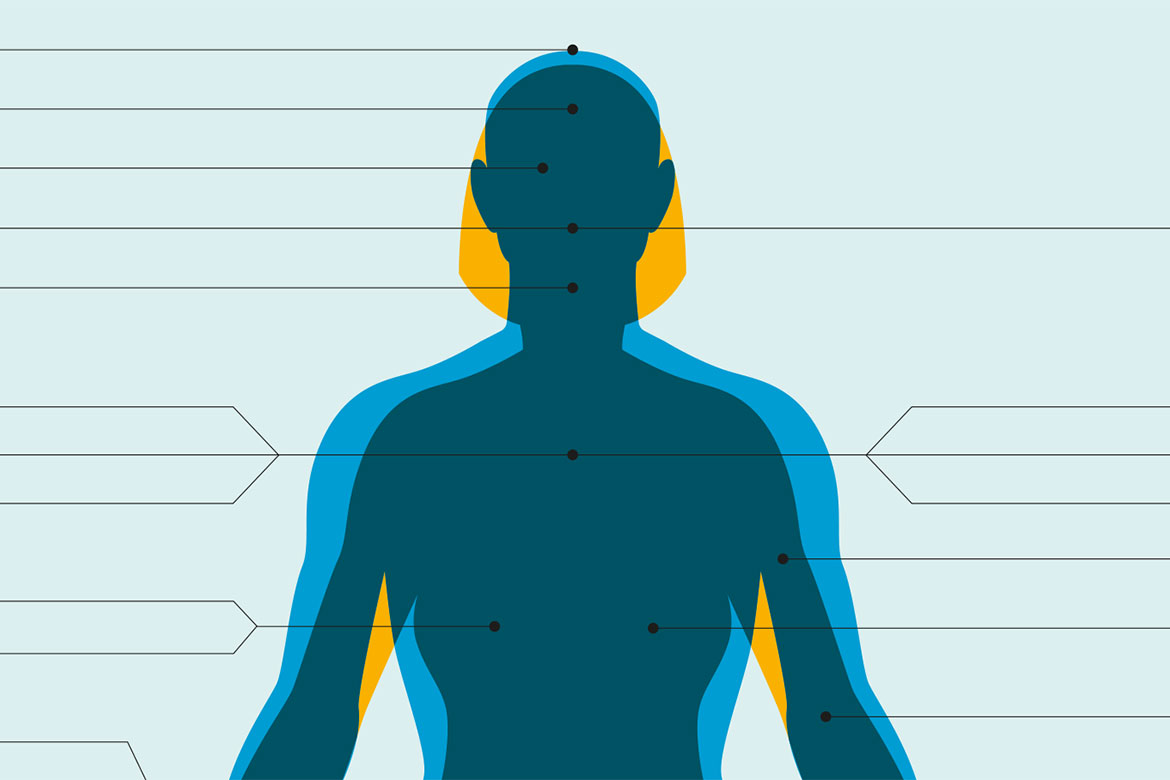The dream of a free market for data
Commercial providers should also use the Web of Data in future. We look at how IT experts at the University of Zurich are building the Marketplace 3.0.

Instead of offering data in an expensive overall package, a free market for data would enable us to buy sections of datasets at a cheaper price per line. | Image: 2. Stock Süd
The vision for the so-called ‘Web of Data’ is really quite simple. Using unified tags and structures, information on the Internet should become comprehensible to computers so that algorithms can better process web content and datasets, and be able to deliver more precise information. Already today, researchers and the public sector are offering many such datasets. In order to bring the commercial sector on board too, a study by the University of Zurich is proposing a marketplace for data that offers the necessary economic incentives.
Private individuals offer up their data
The basis of such a marketplace would be datasets that are prepared according to the principles of the Web of Data. The data in them would thus be comprehensible to machines. An algorithm could then recognise, for example, whether a number in a table registers the age of a person, or the depth of a borehole. Only in this way could we fully realise the potential of the Web of Data, whose aim is to link together disconnected datasets and information to create new interrelationships. Ultimately, the scientific community, authorities, civil society and businesses would receive the greatest possible amount of data of high relevance and quality.
“All possible providers could sell their datasets in such a marketplace”, explains Tobias Grubenmann from the Department of Informatics at the University of Zurich. For example, tourism authorities could sell statistics on overnight stays that in an automatic combination with public data on traffic flows could help define new strategies for sustainable tourism.
But for companies such as Facebook and Google, collections of data are the core of their business model. Why should they be willing to give up this valuable data for free? It’s thus been difficult up to now to convince the private sector of the usefulness of the Web of Data. The possibilities for economising it have until now remained largely unresearched and unexplored, says Grubenmann. “There are many individual private data providers with largely irrelevant content. Their users often don’t know what they could actually do with the data. The marketplace we are proposing offers solutions for how data from these providers could be better used commercially”.
At the heart of their idea is a flexible pricing policy that is oriented on the actual use of the data. Instead of offering data in an expensive, complete package, it would be possible in this marketplace to purchase relevant parts of datasets, for example, at a low price per line. In the case of a concrete enquiry, it would be possible to demonstrate the quantity of relevant information contained in a given dataset, its quality and the asking price of the provider. “In the end, customers would only pay for those lines of data that actually interest them”, says Grubenmann.
In such a system, the marketplace would only have the role of a mediator. Data providers would pay a fee for having their datasets prepared, while relevant data from public authorities could be placed at their disposal free of charge. This should motivate people to generate high-quality, relevant data that can also be utilised by third parties. Grubenmann imagines the emergence of a free market that would regulate itself by means of supply and demand and reputation.
The advantages of such a marketplace are obvious. Clearly structured data could be trawled and linked at will. Public data could be linked with commercial data in order to make new connections visible. Such a well-sorted trove of data could offer completely new opportunities for explorative research, visualisation and detailed demographic analysis and prognosis.
Data has to remain anonymous
“It’s fundamentally positive to promote the linking of data from public authorities with that from the commercial sector”, says Matthias Stürmer of the Research Center for Digital Sustainability at the University of Bern. Such a marketplace could be of immense use to researchers. Nevertheless, he believes that the legal framework has to be in order. “Data protection would be the most important commodity in such a marketplace. It would necessitate a rigorous process of anonymisation, for example. It would also have to be impossible to identify individuals by combining different datasets”.
Florian Wüstholz writes about future technologies and is a freelance journalist in Bern.




